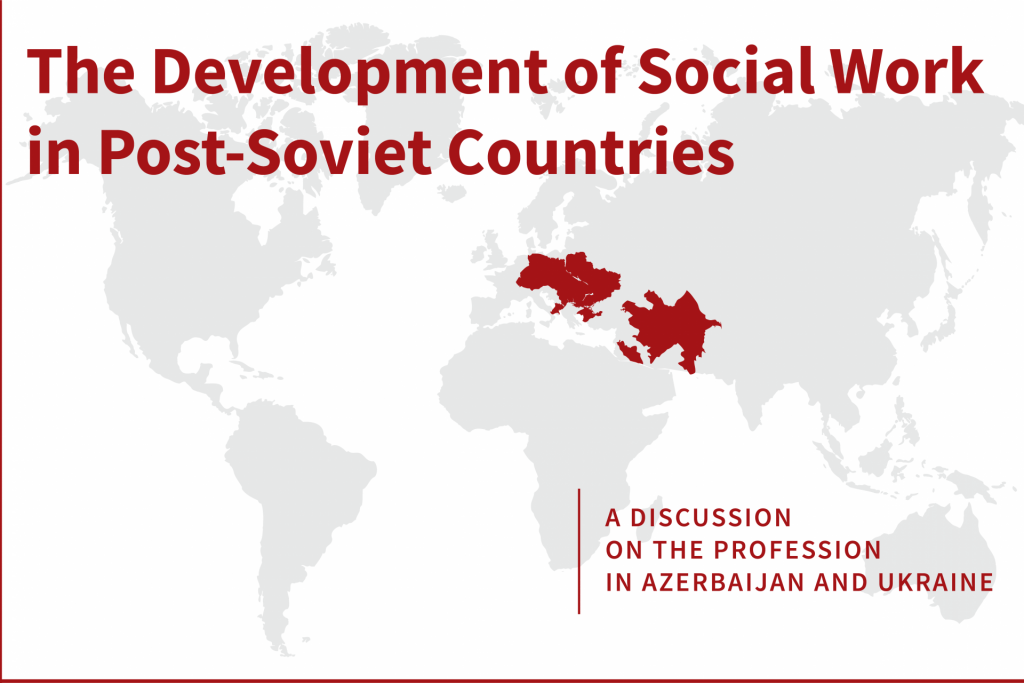
Date: November 15, 2021, 4:00 p.m. to 5:00 p.m. (central)
Location: Virtual Webinar (Video below)
Download the program for this event
The particular conditions and needs in post-Soviet nations have inspired unique configurations of professional social work. What lessons can be drawn from the policy and practice experiences of human-service professionals in these contexts?
In this fascinating discussion, two noted speakers discussed the emergence of professional social work policy and practice in two post-Soviet countries: Azerbaijan and Ukraine. Aytakin Huseynli, founder of the Azerbaijan Social Work Public Union and PhD candidate in the Brown School, discussed her research on the profession’s achievements and challenges in this diverse crossroads between Europe and Central Asia. Fulbright Scholar Nataliia Gusak, Associate Professor in the School of Social Work at the National University of Kyiv-Mohyla Academy, Kyiv, Ukraine, traced the development of social work in Ukraine over the last 30 years, discussing key achievements, current efforts to develop social work as a profession, and obstacles encountered. Video from this event may be accessed below.
AGENDA
Welcome and Introductions
- Moderator: Michael Sherraden, Director, Center for Social Development, Washington University in St. Louis
Achievements and Challenges of Social Work in Azerbaijan
- Description: Aytakin Huseynli presented findings from a qualitative study that evaluated the development of social work in Azerbaijan, highlighting its achievements and challenges. The presenter also talked about the history of social work in pre-Soviet, Soviet, and post-Soviet times.
- Speaker: Aytakin Huseynli, PhD Candidate, Adjunct Faculty and Research Associate, Brown School at Washington University in St. Louis; Instructor, Azerbaijan Diplomatic Academy; Founder & Board Member of Azerbaijan Social Work Public Union
The History of Social Work Development in Ukraine
- Description: Dr. Nataliia Gusak talked about social work as a relatively new profession in Ukraine and its practice over the first 30 years. The process of its professionalization is ongoing. The author presented the key achievements, current efforts to develop social work as a profession, and obstacles encountered.
- Speaker: Nataliia Gusak, Associate Professor, School of Social Work, National University of Kyiv-Mohyla Academy; Fulbright Scholar 2021, School of Social Work, Wayne State University
Q & A
- Moderator: Michael Sherraden
Panel
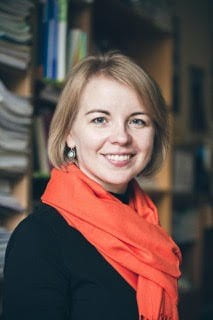
Dr. Nataliia Gusak is an associate professor in social work at the School of Social Work, National University of Kyiv-Mohyla Academy (Ukraine), and a Fulbright Scholar 2021-2022 at the Wayne State University School of Social Work (Michigan, USA). She is a member of the International Association of Schools of Social Work, the International Military Social Work Consortium, and the Institute of Health Visitors (UK). Her main research interests are in mental health, military social work, human trafficking, and research methodology in social sciences. She has over a dozen years of experience in teaching social work and social research-related courses in Ukraine and Ireland. She also possesses experience in providing training and organization development for social service providers. She has been involved as an expert and a researcher in various international projects performed by international organizations (IMC, UNDP, UNODC, UNICEF, WHO, IOM, World Bank, GFA, Kent University, Embassy of Switzerland, etc.), national organizations, and the Ukrainian government (including Ministry of Social Policy of Ukraine).
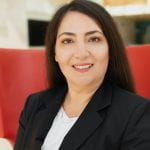
Aytakin Huseynli is a doctoral candidate in social work at the Brown School at Washington University, where she also earned her master’s degree. She is a research associate with the Center for Social Development and the Center for Innovation in Child Maltreatment Policy, Research and Training. She studies political dimensions of child well-being domestically and globally, and her focus is policy-based intervention research. Additional research interests include professionalization of social work and child maltreatment. Huseynli founded the Azerbaijan Social Work Public Union, the nation’s association of professional social workers (www.azswu.org), and has served as its chair since 2015. She also served as a country director of Hilfswerk Austria International and as Second Deputy Member of the Executive Committee of the International Federation of Social Workers. In 2018, Huseynli led a collaboration between CSD and Azerbaijan State University of Culture and Arts to co-organize an international conference on Child Development Accounts. She also was instrumental in the organization and establishment of social work in Azerbaijan. She participated in the establishment of Azerbaijan’s first social-work education programs, helping to found master’s and bachelor’s programs at Baku State University, where she also taught. She currently teaches a course at Azerbaijan Diplomatic Academy. In addition, she has worked with the government of Azerbaijan on reforms to the nation’s child-welfare system and on children’s policy. Huseynli serves on the editorial boards of International Social Work Journal and International Journal of School Social Work, and she periodically reviews article for Global Social Welfare and Child Abuse and Neglect.
Moderator
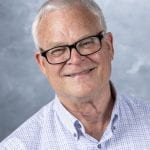
Michael Sherraden, PhD, is the founding director of the Center for Social Development and the George Warren Brown Distinguished University Professor at Washington University. Working with CSD colleagues and many partners, he creates and tests innovations to improve social and economic well-being. He has defined and informed a growing body of applied research and policy to promote inclusion in asset building. This work has influenced asset-based policies and programs in the U.S. and many other countries. His research results have also informed inclusive and progressive Child Development Accounts in St. Louis, other U.S. cities and states, and other nations. His research on the Civilian Conservation Corps of the 1930s contributed to the creation of AmeriCorps, and he was in attendance for the signing of the bill at the White House. Sherraden serves on the Leadership Board of the national initiative Grand Challenges for Social Work, having previously served as a member of the initiative’s Executive Committee. Among other awards, he has been a Fulbright Scholar and listed by TIME magazine as one of the 100 most influential people in the world.
Sponsors
This event was cosponsored by the Center for Social Development in the Brown School at Washington University in partnership with the Brown School’s Open Classroom, the International Consortium for Social Development, and the International Council on Social Welfare.

Brown School Open Classroom
To connect with our community across the globe, the Brown School created Open Classroom – a series of free, one-hour webinars on a wide range of social work, public health, and social policy topics. We offer new programs each week and have an on-demand library with recordings of more than 140 past offerings, available to everyone. For more information, visit Brown School Open Classroom.

The International Consortium for Social Development
Social development processes aim to bring about social, economic and environmental improvement in the lives of people through capacity building. The International Consortium for Social Development (ICSD) is a non-profit international association of institutions, interdisciplinary scholars, practitioners, and students that builds and spreads knowledge of social development to eradicate poverty, improve standards of living and promote human equality and ecological sustainability. It was started in the 1970’s by a group of social work educators to respond to pressing human concerns from an international, interdisciplinary perspective. ICSD promotes international collaboration, education, research, and the dissemination of knowledge by asking key questions, specifying theory, conducting research, using evidence to improve policy and practice, teaching, holding professional meetings, organizing international conferences, and publishing the international journal, Social Development Issues. It is committed to creating peaceful solutions to the problems and needs at the local, national and global levels. ICSD members use a social development approach to
- Develop capacity of individuals and communities
- Promote world peace and social, economic and environmental justice
- Improve access to adequate health care and education
- Overcome discrimination against women and minorities
- Create sustainable income and economic structures
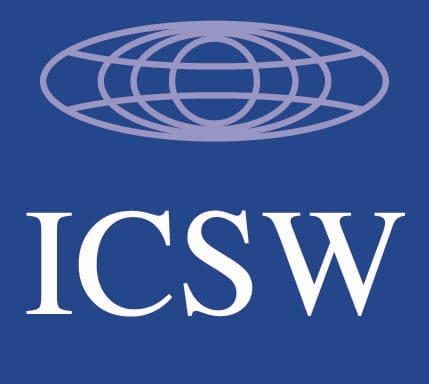
The International Council on Social Welfare
The International Council on Social Welfare (ICSW) is a non-governmental organization focused on advocacy, knowledge-building and technical assistance projects in various areas of social development carried out at the country level and internationally.
Created in 1928 in Paris to address complexities and challenges of social work, the ICSW has evolved through the years to embrace the major issues of social development, becoming a global organization committed to improving human well-being. Establishing common ground on issues of international significance, and acting with partners ICSW represents national and local organizations in more than 70 countries throughout the world working through its nine regional networks. Membership also includes major international organizations. By virtue of its constitution, ICSW operates as a democratic and accountable organization.